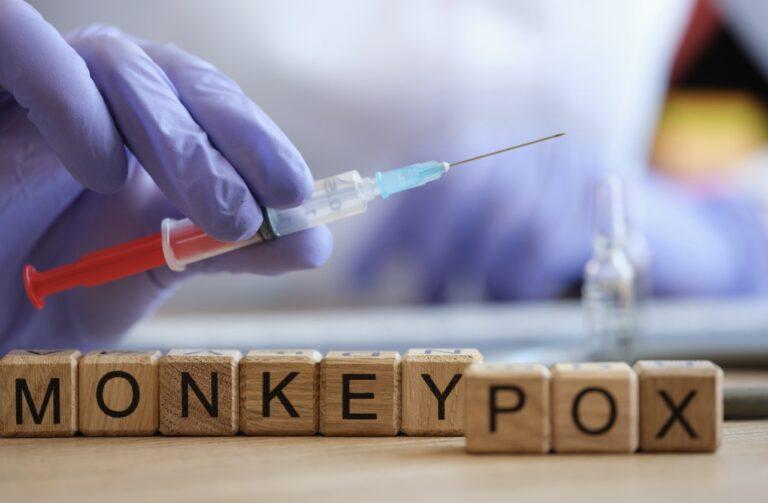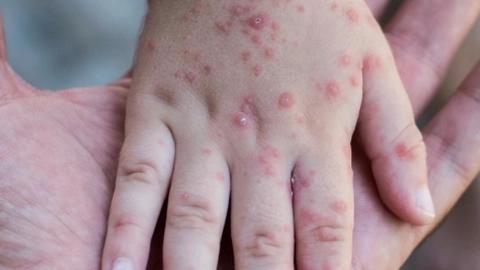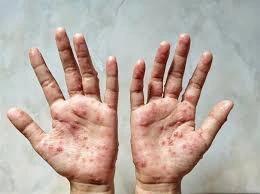
Formerly known as “monkeypox,” the World Health Organization (WHO) has officially renamed it “mpox” to address the stigma associated with the previous name. The scientific community continues to explore the complex nature of this virus. Let’s take a look at the various ways mpox can be spread and the measures that can be taken to protect yourself.
Understanding the Mpox Virus
Mpox, or monkeypox, is caused by the monkeypox virus, a member of the Orthopoxvirus genus. This virus is closely related to the variola virus, which was responsible for the smallpox disease. While smallpox has been wiped out, mpox remains a threat, particularly in certain regions of Africa, where it is endemic.
The monkeypox virus is categorised into two groups:
- Clade I also known as the Central African clade, is typically associated with more severe disease infections
- Clade II or the West African clade, is generally considered to be milder
The current global outbreak, which began in 2022, has been primarily driven by the Clade II subtype.
How do you get Mpox?
Monkeypox can be spread through a variety of routes, and understanding these modes of transmission is important to prevent its spread.
Person-to-person spread
The main way mpox is spread is through close, intimate contact with an infected individual. This includes direct skin-to-skin contact, such as during sexual contact, cuddling, and kissing. The virus can also be spread through contact with respiratory droplets and oral fluids from an infected person. Pregnant individuals can pass the virus to their unborn child during pregnancy or to their newborn during and after birth.
Animal-to-human spread
In areas where mpox is endemic, such as parts of Africa, the virus can also be spread from infected animals to humans. This can happen through direct contact with the blood, bodily fluids, or lesions of infected wild animals, such as rodents, monkeys, and other small mammals. Handling or consuming undercooked meat from infected animals can also lead to the spread of the virus.
Contaminated surfaces
The monkeypox virus can live on various surfaces and materials, including clothing, bedding, towels, and other shared objects. Touching these contaminated items can result in the spread of the virus to uninfected individuals.
Incubation period
The incubation period for monkeypox, the time between exposure and the start of symptoms, can range from 5 to 21 days. During this period, individuals may not show any visible signs of infection, but they can still potentially pass on the virus to others.
Symptoms of Mpox
The initial symptoms of mpox typically include fever, headache, muscle aches, backache, swollen lymph nodes, chills, and exhaustion. These flu-like symptoms are often followed by the development of a characteristic rash, which sometimes gets confused with chickenpox. The mpox rash can appear on the face, hands, feet, genitals, or other parts of the body. The rash changes through various stages, starting as flat red spots, progressing to fluid-filled blisters, and eventually forming scabs that eventually fall off.
Who is at higher risk of getting Mpox?
While anyone can contract monkeypox, certain individuals and groups are at a higher risk of exposure and severe illness.
- The majority of cases have been reported among gay, bisexual, and other men who have sex with men. This is likely due to the virus spreading with sexual partners within this community
- People with weakened immune systems, such as those living with HIV/AIDS, undergoing cancer treatments, or taking immunosuppressive medications, are at a greater risk of developing severe complications from mpox infection
- Young children and pregnant individuals are also considered vulnerable populations, as they may experience more severe symptoms and a higher risk of complications
- Recent travellers to endemic regions are at an increased risk of contracting the virus through exposure to infected animals or close contact with infected individuals
Preventive measures
Key preventive measures include:
- Practising good hygiene, such as frequent handwashing with soap and water or using alcohol-based hand sanitisers
- Avoiding close, skin-to-skin contact with individuals who have a rash or other symptoms of mpox
- Refraining from sharing personal items, such as bedding, towels, and clothing, with those who may be infected
- Maintaining social distancing and wearing masks in crowded or enclosed spaces
- Avoiding contact with wild animals, especially in endemic regions
Vaccination
The smallpox vaccine, which provides cross-protection against mpox, has been an important tool in the fight against this disease. Vaccination is recommended for high-risk individuals, such as healthcare workers, men who have sex with men with multiple partners, and those who have been in close contact with an infected person.
The JYNNEOS vaccine has been approved for the prevention of mpox in the United States and several other countries. It is administered as a two-dose regimen, with the second dose typically given 2-3 months after the first.
Diagnosis and testing
Diagnosing monkeypox typically involves a combination of clinical assessment and laboratory testing. Healthcare providers may suspect mpox based on the patient’s symptoms, travel history, and potential exposure to the virus.
The polymerase chain reaction (PCR) test, can detect the presence of the monkeypox virus DNA in samples collected from the patient’s skin lesions, throat, or other affected areas. This test is considered the gold standard for confirming mpox infection.
In some cases, healthcare providers may also order additional tests, such as those for other infectious diseases with similar symptoms, to rule out alternative diagnoses.
Treatment and management
The management of monkeypox primarily focuses on supportive care and symptom relief, as there are currently no FDA-approved treatments specifically for this disease.
Medications
While not yet approved for the treatment of mpox, some antiviral drugs, such as tecovirimat and cidofovir, have shown positive results in clinical trials and are being tested for their potential to treat severe cases of the disease.
Over-the-counter medications, such as ibuprofen, can help reduce fever and pain, while topical treatments can soothe skin lesions.
Isolation
Individuals diagnosed with monkeypox are advised to isolate themselves until their symptoms have disappeared and their skin lesions have healed. This is crucial to prevent the further spread of the virus to others.
Conclusion
Monkeypox, or mpox, is a complex public health concern. By recognising the various ways mpox spreads individuals can play a crucial role in reducing the spread of this virus and protecting themselves and their loved ones.
Sources
- How It Spreads – Mpox – Poxvirus – CDC
- Mpox (Monkeypox): Causes, Symptoms, Treatment & Prevention
- Mpox – WHO
- Mpox – NHS
Medical Disclaimer
NowPatient has taken all reasonable steps to ensure that all material is factually accurate, complete, and current. However, the knowledge and experience of a qualified healthcare professional should always be sought after instead of using the information on this page. Before taking any drug, you should always speak to your doctor or another qualified healthcare provider.
The information provided here about medications is subject to change and is not meant to include all uses, precautions, warnings, directions, drug interactions, allergic reactions, or negative effects. The absence of warnings or other information for a particular medication does not imply that the medication or medication combination is appropriate for all patients or for all possible purposes.








